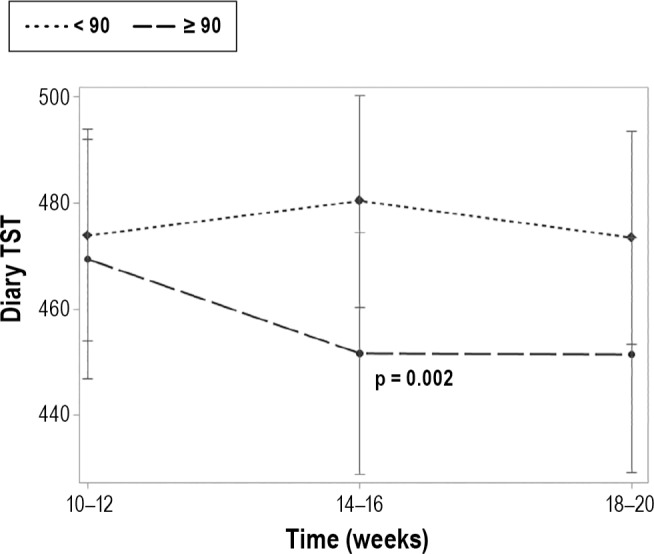Figure 2. Diary-assessed total sleep time by nap length group and time.

After adjusting for relevant covariates (age, race, marital status, children, exercise habits, caffeine use, BMI, depression, and stress), we observed that long nappers (≥ 90 min) had significantly shorter total sleep time (TST) than short nappers (< 90 min) with a modest group × time interaction (p = 0.062).
